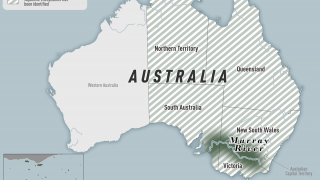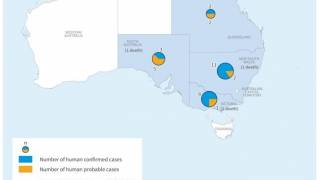US Miltary Purchases 80,000 Doses of Japanese Encephalitis Vaccines

The U.S. Department of Defense (DoD) has exercised an option to purchase 80,000 additional doses of its Japanese encephalitis (JE) vaccine IXIARO®.
IXIARO is the only vaccine approved by the U.S. Food and Drug Administration (FDA) indicated for the prevention of disease caused by the JE virus, approved for use in individuals 2 months of age and older.
According to a press release issued by France-based Valneva SE on January 14, 2020, the option brings the total value of the contract signed with the DoD in January 2019 to $70 million dollars.
Franck Grimaud, Chief Business Officer of Valneva commented in a press release, “We thank the DoD for their renewed confidence in helping them protect military personnel and their families from Japanese encephalitis.”
The IXIARO vaccine was developed through a cooperative research and development agreement with the Walter Reed Army Institute of Research. Valneva markets and distributes IXIARO directly to the U.S. military and U.S. private market.
Vaccination with IXIARO may not protect all individuals.
Immunocompromised individuals may have a diminished immune response to IXIARO and syncope (fainting) can occur in association with administration of injectable vaccines.
The most common (>10%) adverse reactions were: fever, irritability, diarrhea, and injection site redness in infants 2 months to <1 year of age; fever in children 1 to <12 years of age; pain and tenderness in adolescents 12 to <18 years of age; and, headache, muscle pain, and injection site pain and tenderness in adults.
Healthcare practitioners are encouraged to report negative side effects of vaccines to the US Food and Drug Administration (FDA) and the Centers for Disease Control and Prevention (CDC).
The Japanese encephalitis virus is the leading cause of vaccine-preventable encephalitis in Asia and the western Pacific. This disease is spread through mosquito bites, says the CDC.
Most people infected with JE do not have symptoms or have only mild symptoms.
However, a small percentage of infected people develop inflammation of the brain, with symptoms including sudden onset of headache, high fever, disorientation, coma, tremors, and convulsions.
The CDC’s Advisory Committee on Immunization Practices (ACIP) committee published on July 19, 2019, updated guidance which clarifies the types of international travelers who are at risk for Japanese encephalitis.
The ACIP’s new JE recommendation for U.S. travelers are as follows:
- JE vaccination is recommended for persons moving to a JE-endemic country to take up residence more than 1-month in JE-endemic areas, and frequent travelers to JE-endemic areas.
- JE vaccine should also be considered for shorter-term travelers with an increased risk of JE based on planned travel duration, season, location, activities, and accommodations.
- JE vaccine is not recommended for travelers with very low-risk itineraries, such as urban travel only for a short duration, or travel outside of a well-defined JE virus transmission season.
Valneva is a specialty vaccine company providing prevention against diseases with major unmet medical needs. Valneva’s portfolio includes vaccines for travelers: IXIARO®/JESPECT® which are indicated for the prevention of Japanese encephalitis.
More information is available at Valneva.
Our Trust Standards: Medical Advisory Committee






